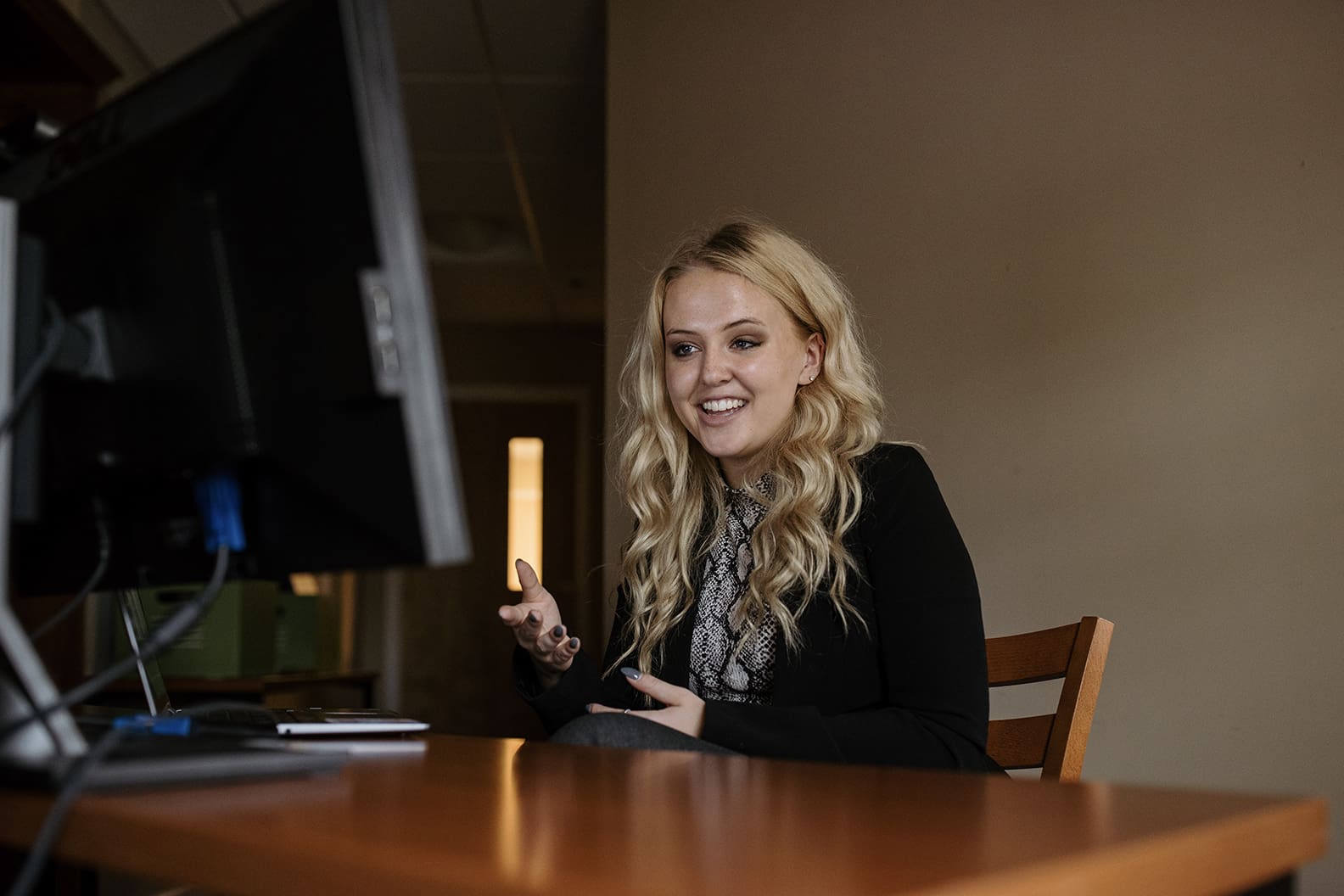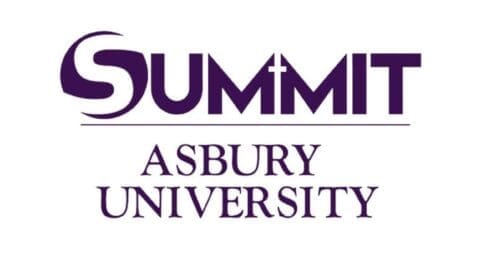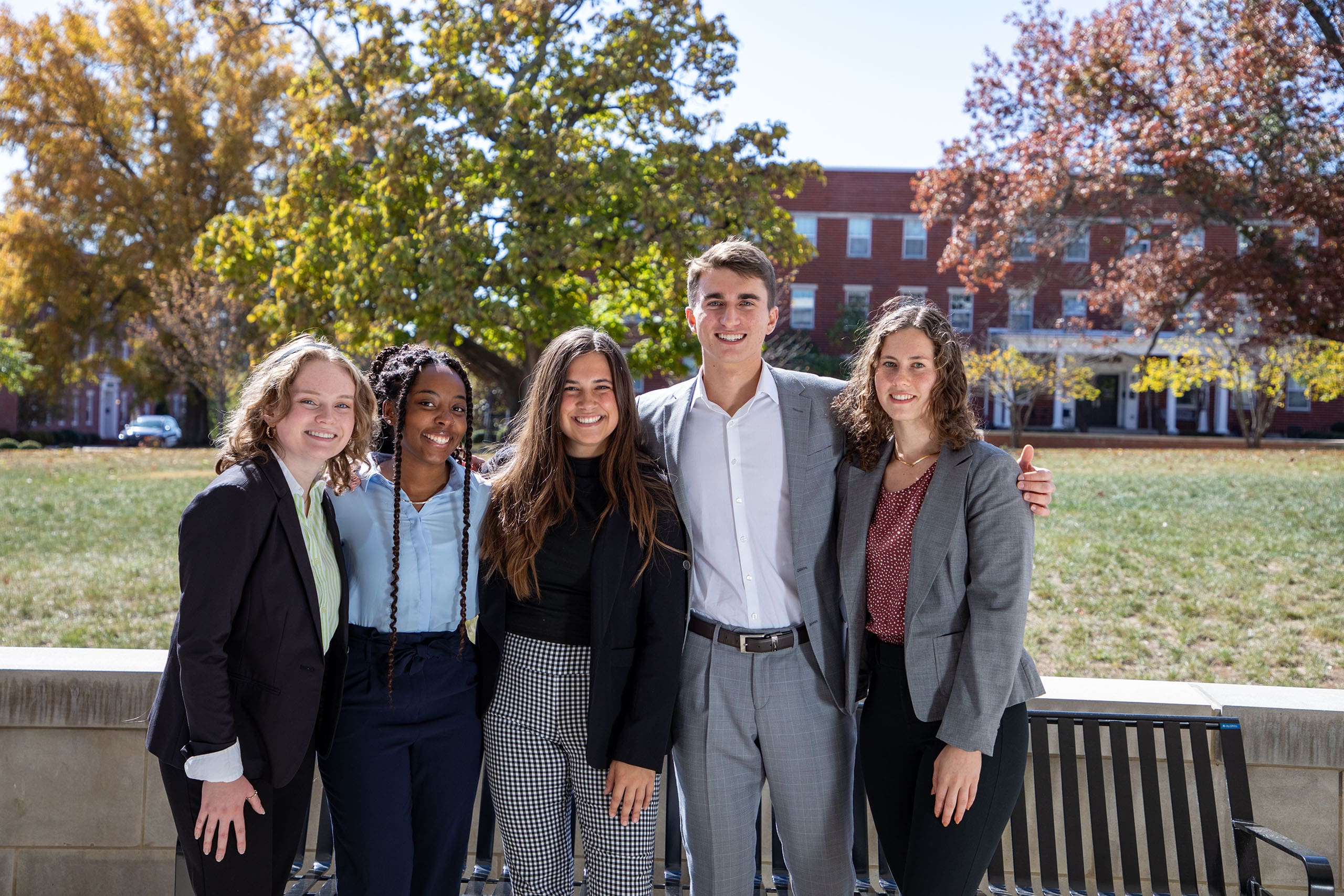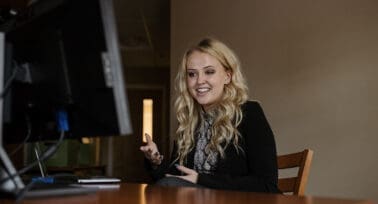
B.A. in Accounting Degree Requirements
Students in the accounting major take courses in fundamental and advanced accounting, business practices and the deeper intricacies of business law, taxes and different forms of accounting. To complete the 124 credits required in the Bachelor of Arts in Accounting degree, you’ll also take some general education courses in humanities and social sciences as well as elective courses.
Asbury University’s well-rounded, liberal arts approach to higher education, rooted in spiritual vitality, ensures you can think critically and communicate your new technical skills effectively to multiple audiences.
The degree requirements for the four-year B.A. in Accounting degree include:
- 60 credits in major course requirements (39 business core, 21 accounting core)
- 47 credits in Foundations general education courses
- 17 elective credits
The undergraduate accounting major courses are designed to impart professional skills that enable you to make profitable business decisions or give accounting advice in a variety of settings, whether you are moved to work in nonprofits, public or private financial and business organizations.
Accounting Major Curriculum
Core accounting major curriculum includes business and accounting courses like:
- Financial Accounting
- Managerial Accounting
- Business Analytics I and II
- Principles of Management
- Principles of Finance
- Principles of Marketing
- Principles of Federal Income Tax
- God, Faith and Marketplace
- Intermediate and Cost Accounting
- Business Law
In tandem with the ethics, philosophy and societal engagement-focused Foundations courses, the B.A. in Accounting curriculum empowers students to take control of their vocation to make a difference in the lives of others or seek to solve the world’s most enduring problems.
Learn more about Foundations, Asbury University’s interdisciplinary liberal arts curriculum.
Review more information about the B.A. in Accounting major requirements and explore the Accounting major course catalog for course descriptions.
Dayton School of Business Related Degree Programs
Dayton School of Business and the incredibly talented Dayton School faculty desire to create a business school that’s the best for the world, cultivating integrity and skill in students who become lifelong learners and advocates. Meet the Dayton School of Business faculty!
From traditional undergraduate accounting, finance or business majors to online MBA programs, Dayton School of Business offers programs that satisfy the needs of a variety of students.
Students pursuing other Dayton School of Business majors can add a minor in accounting to their degree.
Review all of our undergraduate business majors and online undergraduate business program options.

Asbury University Study Abroad and Off-Campus Programs
Asbury University and Dayton School of Business honor the fact that we are an increasingly global world and believe that students benefit from a holistic educational experience that integrates faith, experience and learning through unique exploratory projects.
From study abroad semesters to international internships, Cross-Cultural Engagement immersion programs and even exploring mission and service in your own backyard, each student can satisfy their desire to push boundaries through projects focused on achieving a deeper understanding of our responsibilities as global citizens.
Learn more about community service and mission opportunities, Asbury’s robust study abroad programs and the Cross-Cultural Engagement program.
Meet our Accounting faculty

Dean, Dayton School of Business


Chair of Management and Marketing Department
Outcomes
What Our Alumni Do
Graduates of the B.A. in Accounting are capable of preparing and analyzing financial documents including tax documents, qualifying them for entry-level and managerial positions in accounting or auditing in all types of organizations.
In the accounting degree program, you’ll learn:
- Financial computations and how to prepare federal tax returns
- Strategies for evaluating financial statements for risk, fraud and opportunities for profit
- How to efficiently manage and maintain financial information and records
- How to effectively convey smart financial recommendations to stakeholders
- The fundamentals of business law, finance and marketing
- Principles of macro and microeconomics
- Business analytics, or how to translate data into actionable insights
Along with courses focused on technical auditing and accounting skills, you’ll take others that impart an ethical, philosophical and spiritual approach to the profession. The option to take a targeted Accounting in Nonprofits course empowers students to answer their calling to help others and make a difference through their work.
Alumni Stories

Hear what our alumni have to say!
Evan Kinniard ’23 is Tax Accountant at EY, one of the “Big Four” accounting firms. Evan shares: “I help organizations with tax compliance, such as filing tax returns and preparing or auditing their income tax provision under regulation of ASC 740. What I enjoy most about Asbury’s MBA program is that I am being prepared to be a better thinker in today’s marketplace, while being grounded in Christ. We are encouraged to learn what it means to be innovative and how to make a change in the world by serving others.”
Brady Buher ’23 is a Financial Analyst at Breneman Advisors. He shares: “Asbury’s MBA program aligned with my work schedule, amplified my career goals, and increased my spiritual awareness and professional skills. The high-quality education in a flexible environment was a great fit for working professionals like myself. In my current role, I help clients budget, manage their general ledgers, and provide insight into the health of their businesses so that they can thrive.”
Pathway to the CPA Examination
Students interested in the accounting degree should be aware that in many states, the respective state boards of accountancy requires 150 credit hours to become a Certified Public Accountant (CPA). With the B.A. in Accounting comprising 124 credit hours, we recommend that students complete the undergraduate accounting major at Asbury and attain the additional hours in the Asbury +1 MBA or +1 MSAC programs.










